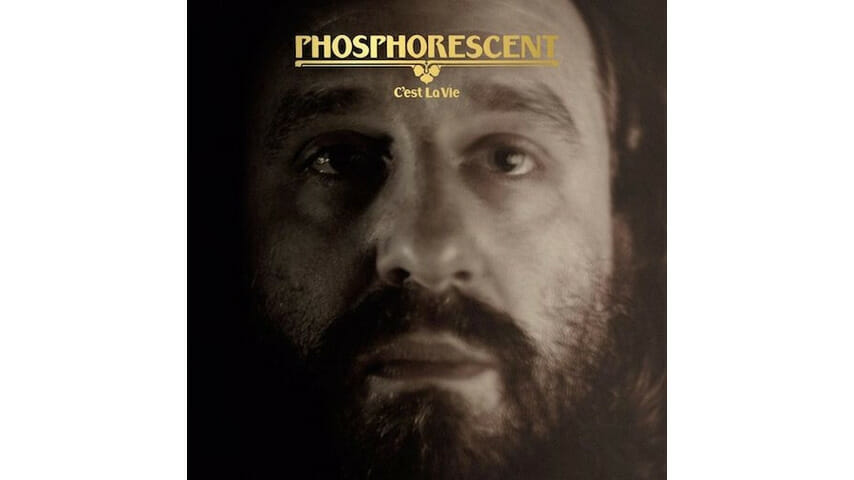Phosphorescent: C’est La Vie

Phosphorescent’s Matthew Houck was probably due for a record about the ever-changing nature of life and the associated beauty and mystery of human transformation. After all, his last full-length—2013’s celestial folk-rock masterpiece, Muchacho—was a breakthrough, earning more accolades and ears than his previous five albums as Phosphorescent. That alone will change a man. Plus, Houck released Muchacho in his early thirties, after 10 years of living the lifestyle of a hard-touring musician. Hurtling toward his forties, he knew he couldn’t keep that up. “I think that was the first time I ever slowed down enough to have a moment like that,” he told The Guardian in a late-2013 interview, “where everything musically and personally just seemed at a questioning point.”
And then came the next five years: Houck fell in love, got married, moved from New York City to Nashville, became a father, nearly died in a bout with meningitis and built his own studio, by hand, from the ground up.
That’s a lot of major life events to pack into a half-decade, so it’s no surprise that Houck sounds like a different man on his new album C’est La Vie. His fine-grit tenor is still perfectly raspy, and his songs still hang effortlessly near the border between barstool country and warm-glow pop, with Houck’s experimental streak interloping into both territories. This is still Phosphorescent. It’s just that the man behind the wheel is older and a little bit wiser these days.
-

-

-

-

-

-

-

-

-

-

-

-

-

-

-

-

-

-

-

-

-

-

-

-

-

-

-

-

-

-

-

-

-

-

-

-

-

-

-

-








































